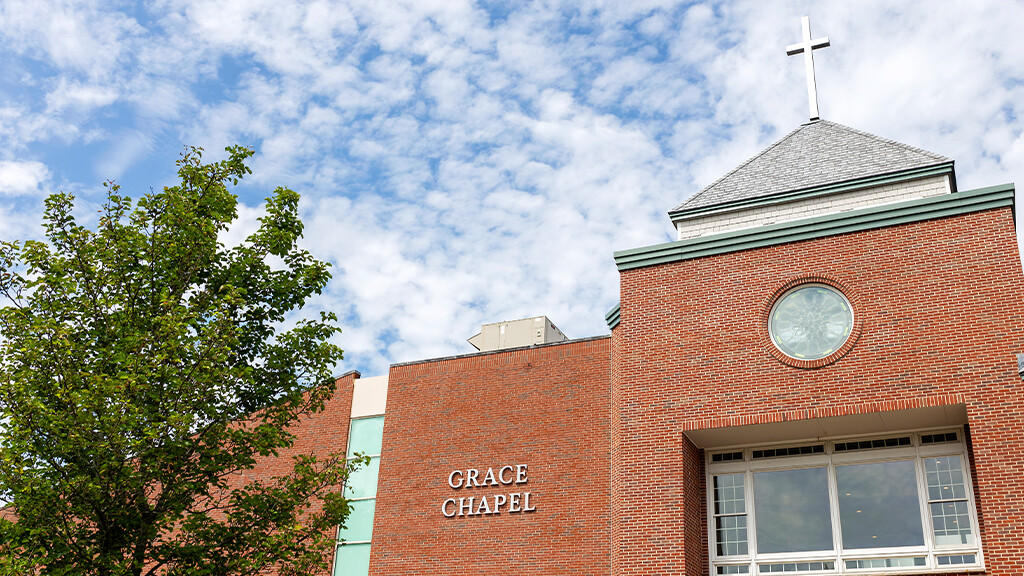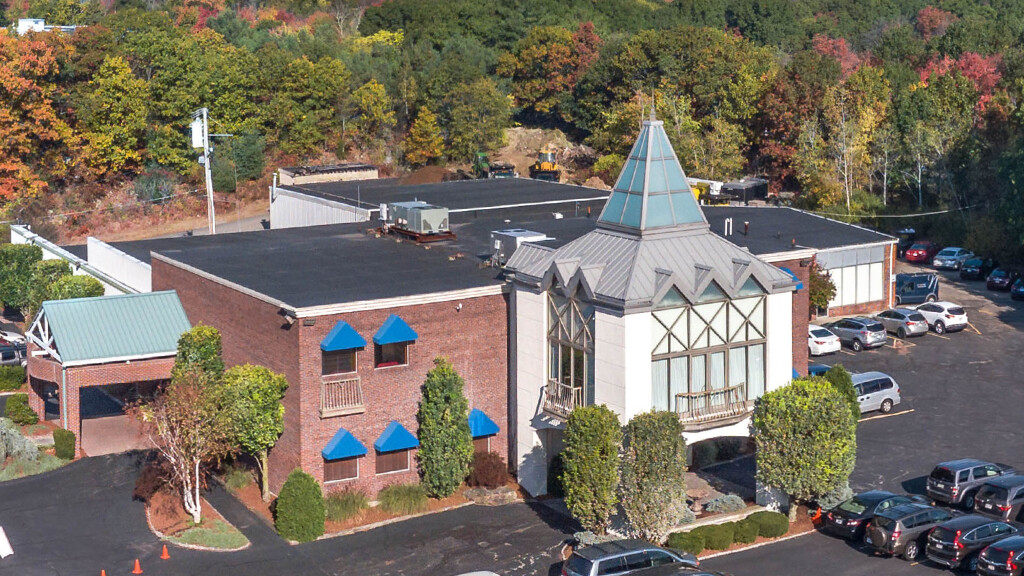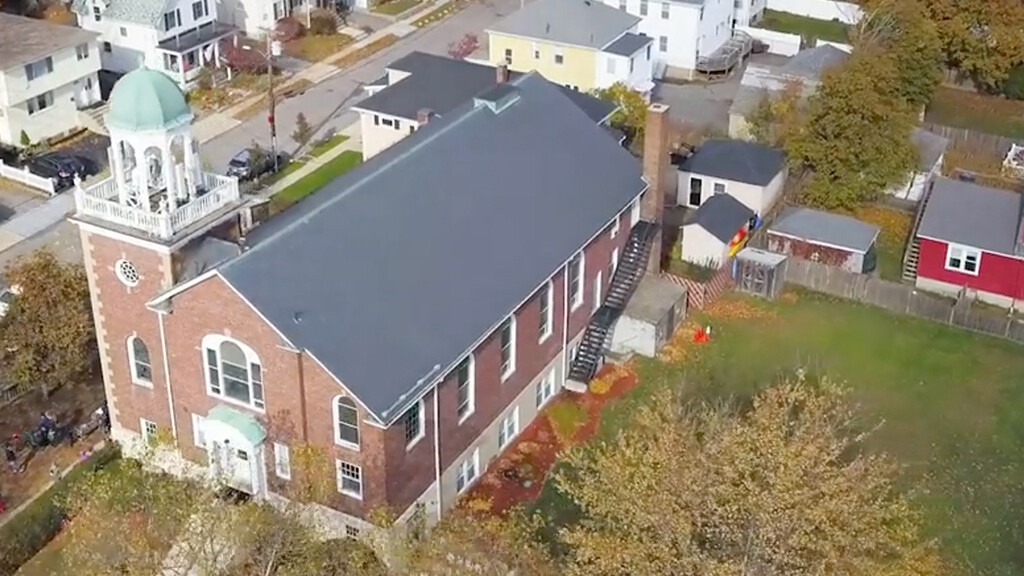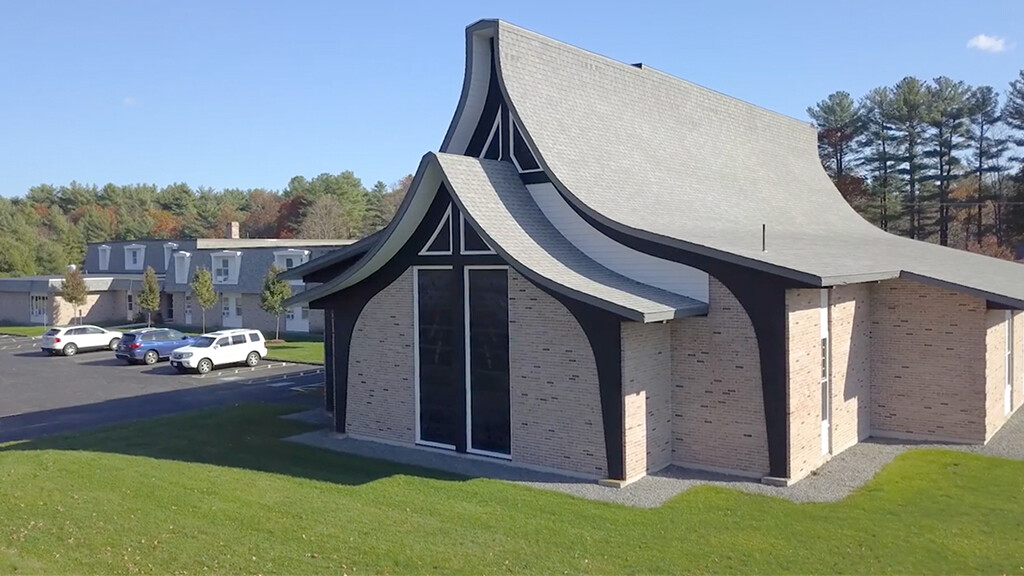There’s a lot of work we have to do on our journey toward racial justice. Empathy may not be the first thing that comes to mind, but empathy is a vital step on that journey. And it’s more powerful than we may think.
Real empathy is hard work, and it’s a risk, because we’re opening ourselves up to other people’s experiences, seeing what they see, hearing what they hear, and feeling what they feel. But through it we gain a deeper understanding of the issues the world is facing… and ourselves.
A few years ago Grace Chapel invited a handful of people to join Pastor Jeanette Yep on a Racial Justice Team, with the goal of helping our congregation understand and address the challenges facing the church and society today.
In this video, a few of those team members come together to share a bit about their life experiences and the role that empathy has played in their journeys and their efforts.
Transcript below.
Transcript:
Richard Rhodes:
Hi, Jackie. Hi, Sharon. Hi. Great, great to see you. Um, we were a part of a racial justice team, uh, about a year and a half ago. And, and we met for about a year. Uh, we didn't really know each other all that well, but, um, I don't know about you, but towards, you know, the, you know, the middle of the end, I started to feel like family, you know? Yeah. So what, what was it like for you to be a part of that experience?
Jacqueline Dejean:
Um, I'll, I'll start. Yeah. Um, so for me, it was really, uh, my work at the time at, um, Tufts University was as a diversity officer. And so since 2020, um, with, uh, George Floyd's, um, murder, uh, it was a big priority at the university to see change and to, um, undergo a transformation of the institution. And to be invited to do this at church was really, um, rewarding for me. It was psychologically it was such, um, a great shift in my thinking because for a long time I saw universities, I saw the world engaging in, um, anti-racist work, but I didn't see the church engaging in anti-racist work. So to be invited to be on that committee was really meaningful for me.
Richard Rhodes:
That's great. That's great. I'm glad that was. Sharon - what about you?
Sharon Kumar:
Uh, I think similar to what Jackie had shared, I think I was at a point in my own faith journey where I was wrestling with a lot of these things that, um, a lot of just people in my generation, my peers, and I think our country as a whole at that time was just really wrestling with. And I remember thinking, how do I reconcile this with church when I'm, I'm seeing the church address it, but what does this tangible work in this area look like? And how do we go about it? And so I remember receiving Pastor Jeanette's email and had the words, I'd like to invite you to be part of the most important work, or, you know, that I praise my honor shake. And I remember being really curious and intrigued. And just over the course of that year, being a part of this team, I think, I think I grew and just my recognition of how much I didn't know and how much there was to learn.
But also just in a hope that there was, so, there was so many ways that the church could move forward, and Grace Chapel could help, will come alongside the work that church were already doing, but that also lead in a lot of significant ways as well. And I think one, one thing I'll share, I remember during that time, I remember there was, um, significant points throughout that year too. There were, there were things with a p that was going on, other things. And I just think even this group being a space to process and think through and talk through it was, was just Yeah. A healing bomb in a lot of ways
Richard Rhodes:
Yes. I mean, it was challenging. I mean, we had some tough conversations at times, but it was, I, I would agree. It's just, it was very enriching, and I, I just learned so much from you and the other members of, of, of that team, um, give, you know, tell us a little bit about your cultural and faith background...
Jacqueline Dejean:
Sure. So, um, one thing I'll say is that it was being invited was a little scary to be on the racial justice team. And I, I'll, I'll talk a little bit about that. But my background, um, my parents are from Haiti. My dad came to the United States as a graduate, uh, level exchange student sponsored by his government. And, um, I was born in the United States, so my parents experienced racism as a cultural shock, and I experienced it more as like a cultural norm. And, um, I say that not to like compare us because I, you know, we're all equally traumatized, I think by, by racism. But just to kind of say that I have the perspective of someone who comes into the country with a lot of hope. And a lot of aspiration, and I see what racism does to that hope and that aspiration. And then I have the experience of being someone who was born into the limitations and the restrictions and the confinements. Um, and I've always looked to, uh, faith to carry me through, um, to give me the strength to recover from the damage and the harm and, you know, continue to be the kind of person that I know Christ would want me to be.
Richard Rhodes:
That's powerful. I hope that Yeah, no, no, that is, that's beautiful. And to see how your faith really affects hurt and affects, you know, how you view, uh, the world and your own experience in it. Sharon, what, what about your cultural faith background?
Sharon Kumar:
Um, so my parents are from India, and they had immigrated to Oman in the Middle East, um, in their twenties and where they met and got married. And so I was born in Oman, um, and, and born and raised there. And then we ended up immigrating to the United States, uh, when I was 12. So I spent the first, the early part of my life and most of my childhood there, and then continued on when I was starting eighth grade. Okay. Um, yeah. And then in terms of faith, I would say I grew up in a Christian home, but I would say I was not, didn't understand what it meant to have a relationship with Christ. So really walk with him until later in life in high school, I would say is when I really, uh, yeah. That just became real to me.
Richard Rhodes:
Oh, that's beautiful. Um, Sharon, you know, you know, when you think of Grace Chapel, in your experience, how, how long have you been at Grace?
Sharon Kumar:
Ooh. Uh, that's a great question. Let's see. Probably about, actually about 10 years now. Wow. Yeah. I was on and off. I, I came right around my senior year of high school. We started attending and then, then I left for school, but I'd be back during breaks. Somewhere in that ballpark.
Richard Rhodes:
So what's your experience been like at Grace? I mean, um, positive or negative in terms of, you know, kind of this journey, this cultural journey for you. What's that been like?
Sharon Kumar:
Yeah. I think it's, it's taken on different forms in different seasons. I think that I almost feel like in some ways I've grown up in the faith here at Grace. Um, and so I remember coming here in, in high school, I came probably right before graduation, so it was kind of an odd time to even come. And I remember prior to that I had been part of an immigrant church when I came here. So that'd been my experience where I came, come to Faith. Growing up, up. Um, and so I remember stepping into our high school ministry and stepping into a small group, and, but I think just coming into a recognition, that was the first time I'd ever been in a small group with people who didn't look like me, where I was talking about things of faith. And, and I remember thinking back to that moment, just feeling just not, not sure, like how do I, I talk about faith. I think the way I had known God and related to God from just based on my cultural upbringing was, was so different from what I was hearing others talk
Richard Rhodes:
About. So did it feel uncomfortable? Did it feel Yeah,
Sharon Kumar:
I think I just wasn't sure, like, yeah. I mean, I knew I was walking with God and I knew how, like I had a relationship with him, but I just didn't know how to express that in a way that maybe people might understand me, or I think there just were different ways of relating or maybe feeling misunderstood or I'm not totally sure. Um, yeah, just how to, how to reconcile the way that I saw God. Okay. And, and how I saw God expressed in my culture and, and to a completely foreign space for me. Um, so yeah, I think a wow, a little bit of adjusting. I think I remember not speaking much those first several months, um, and just trying to listen and yes. And, and hear, and, and yeah, I think definitely felt like an outsider stepping, uh, into a space Okay. That I didn't know what to do with.
Richard Rhodes:
Okay. And Jackie, how long have you been at Grace? And what's your, what, how would you say your experience is? What's it been like? Sure.
Jacqueline Dejean:
I started at Grace a while ago, but it was for a short period of time. Um, and I moved to West Virginia, and then, um, I returned to Grace, I think in 2018, um, to the Watertown campus. Okay. Um, and so I've been active, um, in that church for quite some time. And I, I really loved the Life Group. I think that was the way that I got connected. Yes. And, um, they became my family.
Richard Rhodes:
Yeah. You've told me about your life is, is a great life group.
Jacqueline Dejean:
<laugh> and, um, you know, during the pandemic we, I learned how to play Rummy Cube because of my life group. And, um, and we continued to play throughout. And
Richard Rhodes:
And your group eats a lot.
Jacqueline Dejean:
We do. We do. We eat a lot. We, uh, we gather together, and it's, it's really everyone. Actually, I retired recently and I invited my life group to my retirement party, so it was really nice to have them with me. That's beautiful. At work, you know, with my colleagues.
Richard Rhodes:
That's so good. So how would you describe your journey as, as this person of color in, in this space called Grace Chapel? What's that been like, positive or negative?
Jacqueline Dejean:
Hmm. So if I could extend that space a little. Yes, you can. Before Grace, um, I mean, my, my experiences have been very diverse. So I was in a church that was predominantly black Caribbean. Um, and so it was very familiar, um, very comfortable. And, um, after that I was in a church that was predominantly white. Um, and you know, the, the difference is, I'll give you an example. I was at a women's prayer meeting and they asked us for, uh, prayer requests. And my prayer request was, um, I'd like to pray to end racism. This was 20 years ago. Wow.
Richard Rhodes:
Wow.
Jacqueline Dejean:
And, um, the responses were, I thought that was just in the sixties. What do you mean by racism? Wow. How does it, you know, how does it affect you? It's, you know, we we're all Christians here, right. So it's not really a problem. And then, uh, surprisingly, or maybe not surprisingly, we didn't end up praying about ending Wow. Racism, um, and coming to, uh, grace Chapel, you know, having had like multiple experiences like this, um, and coming to Grace Chapel, I wasn't expecting anything different. I was expecting to experience God, um, and I was expecting to sort of navigate microaggressions and misinformation and insensitivity. Um, and so I think that's why being invited to be on the racial justice team was so impactful. And pivotal for me, because it told me that the church was willing to have these, not just conversations, but willing to go through a transformation.
And I was already vested in participating in the transformation that was happening at work that was promised at work. Wow. And so, to have my home church make the same kind of promise. Yeah. It, it really, I've always felt like a fractured person. You know, and it really felt like for once everything was in agreement, you know, that what I was doing at work, I was doing at church, I was doing at home, and there was unity there, and I didn't have to have two different mindsets. Wow. So it was really, it was a beautiful moment for me to be invited, but also scary.
Richard Rhodes:
Yes. I think all of us, when we first started, you know, when Jeanette invited us all to be a part of that, it, it, we, we all kind of came into it not knowing exactly what, what it was gonna gonna be like. And, um, I think it took us a little while to kind of get a little a feel, you know, are we going to really be serious about this? Or what's gonna come out of this? And will this be uncomfortable? Will it be painful? Um, and I think over time we really, as we got to know each other, as we really heard each other's story we, we did develop empathy with, uh, each other's story. Um, and, and, you know, and, and you know, as a, as a, as a white, uh, male, um, you know, it, it, I wondered what it would be be like for me. Um, and, and, and so it was quite a learning experience. When, when you think of, um, relationships either at church or other relationships, um, you know, what, what do you feel has been helpful in developing empathy, uh, in, in those relationships? What, what has been helpful to you personally as you've grown in those relationships? Anything come to mind?
Sharon Kumar:
Yeah. I think a couple things came to mind. I think both with both extending empathy, but then also receiving empathy. On the other hand, I think with extending empathy, I think, um, just being willing to listen and be curious as people will not assume other people's experiences has been huge for me. Um, I think particularly, I think of moments during kind of the racial reckoning of, of, of 2020. And I think just sitting, particularly with my black brothers and sisters and hearing their experiences, and I distinctively remember just being moved to SOS Okay. You know, just kind of feeling the weight. And I knew I was feeling a very small portion of what so many that they were feeling. But even I think, I think just empathy is just that element of listening, taking on, and then letting yourself feel the weight of it and feel uncomfortable Yeah.
And painful to the point that it disrupts your work day. But I think that's a lot of the heart of Jesus, right. Just sitting with others and their, and their weeping and their pain and, and not really knowing how to fix it or what to do about it, but even just the sitting Yeah. I think has helped me. Um, just sitting, sitting in those moments has helped me, um, extend empathy. And then I think with receiving it, I think just, I think others doing the same thing toward me as asking questions, listening to my experiences. I think caring about the whole person. So not just caring about my faith, but caring about my cultural identity and, um, yeah, I think all these different parts of who God has made us to be in, in this image. So I think just when others extend that, that same listening year, that same curiosity, um, I think, yeah. I've just had the gift of receiving.
Richard Rhodes:
Yeah. So both ways, this work, both ways. Handling it. Uh, what about you, Jackie?
Jacqueline Dejean:
Um, I would say empathy is really hard. <laugh> it, it's really hard. It is, it is. Um, I, I think about the power dynamic of empathy in, in terms of, you know, when you, when you are a person in the majority, you're in a position where you can think about your resources and how you can be available, how you can, what you can contribute. And when you are the person who's oppressed, how do you sit down with a member of the group that's oppressing you and extend the empathy of being able to say, here, I'm putting my trauma and my vulnerability out for you. Right. So that you can transform, so that you can be better, so that we can be in fellowship Right. In a way that's healthy. Um, and so I think empathy is really, is, is really hard. And, um, from my perspective as an African American, when I engage in like dialogues around race, I know that to some extent I am making myself vulnerable to pain and I am accepting that I may be experiencing a trauma, uh, in the process. And what fuels this willingness to allow my trauma is hope.
Richard Rhodes:
Okay.
Jacqueline Dejean:
I am hoping, yes. That by allowing myself to be vulnerable, you can transform, because you can identify with my humanity and you can see my pain. Mm. And you can say, okay, how have I contributed to this? What can I do to change? Yeah. Um, and so I'm taking a chance because I'm hoping. Yeah, yeah. You know? Wow. So that's good. So that's what I would say. Um, yeah. Empathy is really difficult.
Richard Rhodes:
<laugh>. Yes, yes. Um, you know, I was probably like that person at your prayer meeting as, as a white guy saying, why do we need to pray about that racism? That's, that's that we solve that one. And, and so I think for me being a part of this team and what my really, my empathy journey, if I could call it that, you know, began with, uh, really began with the murder of George Floyd. And I'll, I'll never forget being so impacted by that. And then, uh, my 21 year old son said, dad, I'm going through the Black Lives Matter, march in Boston, you want to go? And I'm like, yeah, okay. And that, that, that experience just was my north star, became my north star for a change for me internally. Because what happened was I just saw such pain, anguish, anger with my black brothers and sisters all around me.
I mean, uh, you know, right there at the, at the, at the state capitol, the steps. And I went home going, we, there's still a problem there. There's a lot of pain for not just from the past, but the present. So I think in, in my journey, that just led me then to start having conversations, to start, you know, asking harder questions, reading, you know, and the racial justice team was a, a big part of that. Yeah. You know, because I, I just admitted to you that I'm, I, I'm just like, at the beginning of this journey, um, and, and, and yet we found lots of other people wanted to talk about this as well. I mean, that's, we were so excited. 500 people joined be the bridge groups, you know, cuz there was a need to have more understanding and more empathy, um, for the pain that was being experienced currently, um, because that was a big shocker for me that it was still being experienced, um, by people of color, um, and, and so that you were a big part of that journey for me. So I am very grateful. What, when you think of Grace Chapel now, what, what, what do you have concerns about where we are in this journey? Hopes for where we are in this journey?
Jacqueline Dejean:
Um, oh, so one of the things I hope is, um, that regardless of what happens in terms of the momentum outside of the church, that, um, will continue, that's one thing. Uh, the other thing is something that I notice happens a lot is erasure, you know, so, um, that we sort of remember what we've done, why we did it. So I, I'll give you an example. Um, myself, I grew up in New York City. I always thought the Statue of Liberty was honoring the immigrants from Europe. Um, and it's not that long ago that I learned, um, that the Statue of Liberty was, uh, erected, uh, in commemoration of emancipation of slaves. And in addition to that, the design of the statue was different, it was supposed to be torch and chain, you know, so torch in one hand and broken chains in the other and, um, you know, the Americans were like, no, we don't want the chains in on display, you know. So I think whatever we do here, whatever, whatever gets established here, that we remember why it was established and keep that history alive, because we do have a tendency to just erase things because it's comfortable, it's uncomfortable to remember what we did wrong. And, um, it's great to celebrate when we're doing right. Yes. And the temptation is to just kind of erase Yeah.
Richard Rhodes:
So Yeah. Yeah. That's good. That's, that's really good concerns, hopes for you.
Sharon Kumar:
Yeah. I think, um, I think a hope for me has been seeing the progress <laugh> even over the last several years. I think, uh, I, you know, I know it was a big deal for, for Grace to even step into this space to even have the team come about. And, and so I think, I think there's been been many ways that I've been pleasantly surprised that Grace has been willing to step into this space and to press on ahead. Um, I think, and yet, you know, the cynical part of me feels like this is way too big of an issue, right? Like this has been happening for decades and centuries. Right. And the church has had an active role in perpetuating it. And so I think, I think when I, when I think about the hopes and I think about the concerns and look at the history, I think there is a part of me that is like, Lord, we can't do this without you.
Right. That's right. We can't keep this front there, um, cuz we're flawed and broken people and yeah. We seek what's comfortable and. So yeah, I think I'm, I'm very hopeful. I think particularly Gen Z gives me a lot of hope, right? Like how much they just desire to lot of people. I was talking to a student recently and, you know, and she was like, you know, for all the fault of our generation, I think one thing we do really well is we seek to love people despite difference. Yeah. And so I think, I think they give me a lot of hope, but I also know that there's institutions of power and, you know, yeah. There's just so many organizational factors that at the end of the day can Yeah. Can push this to the back burner. Um, yes. So I hold, I hold a lot of hope, but I also Yeah, I, yeah, I think I, I'm like, Lord, help us, you know? Yeah. At the end of the day.
Richard Rhodes:
Yeah. I, I mean, I think my, my concern, um, is, is probably similar. I, you know, I think I am concerned that this empathy that I've come into and others have been coming into, uh, won't lead to real change, that the things that brought about these injustices won't actually be changed. That I'll just be inspired or moved. And, and, and Grace Chapel will have conversation after conversation after conversation without real, real change. Um, I heard a speaker recently that mentioned Martin Luther King said, okay, you know, the, the, the Samaritan that was beaten up and on the side of the road is just right. Jesus says, take care of that guy, but at some point we got to fix the road to Jericho, you know, and that whole sense that, that there's systems that perpetuate injustice and against all kinds of vulnerability.
All kinds of people that are vulnerable. And, and that's, you know, when I, I just keep reading since all of this, just reading the gospels over and over and looking at who Jesus cared for and how he cared for them, and he cared for the marginalized, he cared for people that were invisible, people that everybody else said, forget them, you know, push them aside. Um, so I think that that's probably my, my concern and, and, and my hope is that we will be about real, real change. And with folks like yourself helping with that, that makes me very, very hopeful. Um, thank you so much for being a part of this, um, for the way you've enriched my life, um, for the way you've embraced me and my steep learning curve. Um, and I, I really thank you for this.





